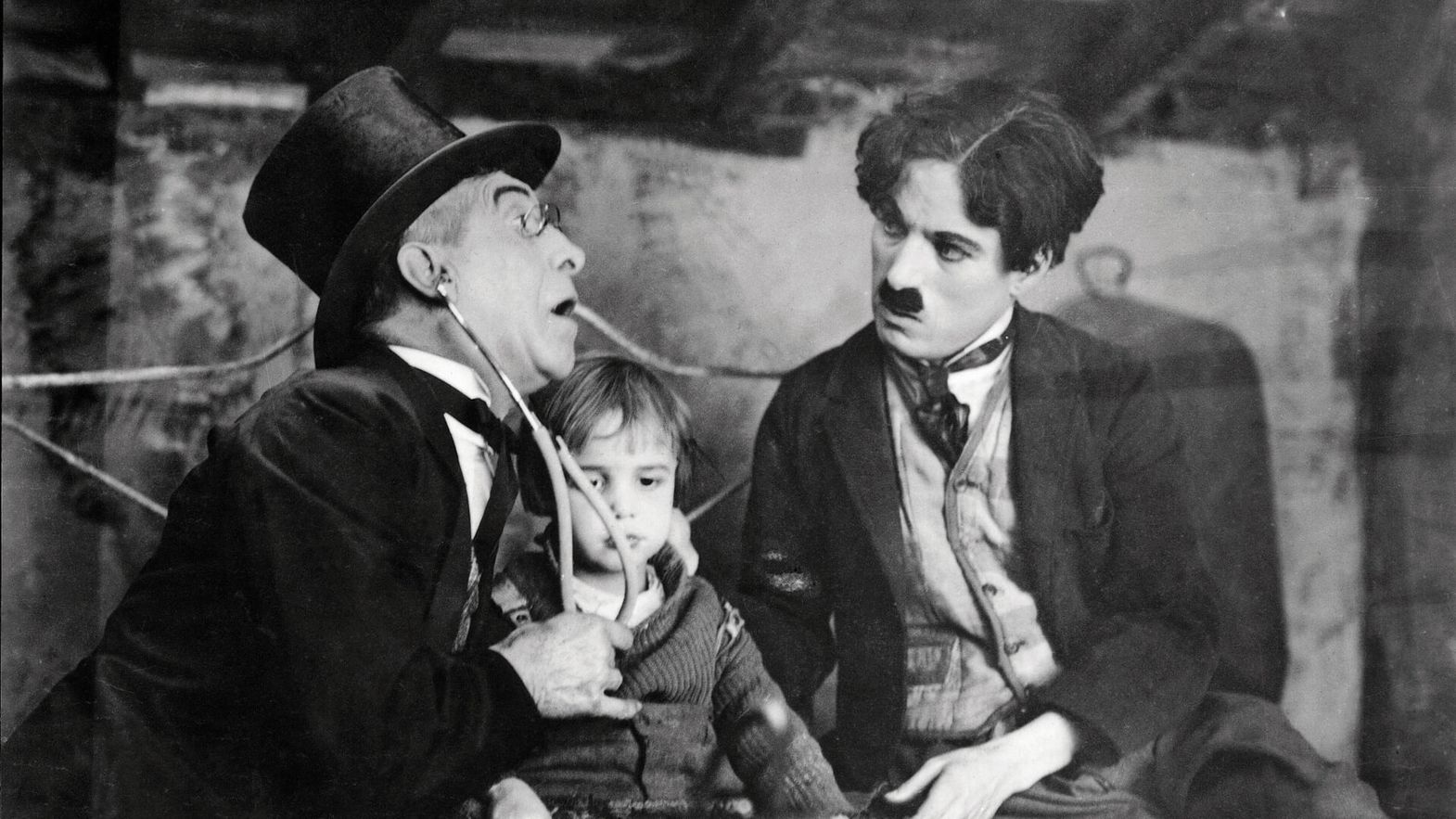 © Roy Export S.A.S.
© Roy Export S.A.S.
It took months and months of shooting, with Chaplin's well-known perfectionism, for his first feature film, and this already gives it great importance in cinematic history. Chaplin, thirty-two, thanks to his shorts is already the extremely popular king of slapstick comedy and has enough mastery to write, produce, act, direct, edit what is remembered as his most autobiographical film. A work destined to become immortal, for that alternation of tones that will become typical of Chaplin's cinema.
The Kid is an eternal story, defined by an intertitle at the beginning "a picture with a smile – and, perhaps, a tear". In reality, many tears are shed, because Chaplin always has the courage of feelings. The impact of emotions on the viewer is head-on. Here we are dealing with a very young child abandoned by his mother still in swaddling clothes, as the illegitimate son of a painter, and it is not necessary to say that all sorts of things happen to the poor child. Chaplin is the tramp who takes care of him. He will not be a perfect parent, but at least we can be sure that he is not unfeeling.
In a realistic and raw film representing poverty, the final dream sequence surprises for freedom and comedy. In the Dreamland that the vagabond dreams of, the neighborhood where he lives is filled with flowers, turns into a festive place inhabited by flying angels, complete with wings, until the invasion of devils arrives to bring havoc, jealousy and violence. It is a dream of compensation, in which the tramp and the child can embrace each other for a moment. But, fortunately, it is also a premonition of the happy ending, which remains quite open.
The Kid has been honored by many directors, from Martin Scorsese in Hugo to Fatih Akin in the 2014 film The Cut, from C.T. Dreyer in Michael to Woody Allen in Crimes and Misdemeanors, and even by an antipodal filmmaker like Quentin Tarantino in Inglourious Basterds. It is Wayne Wang's favorite movie. The influence of the film, however, goes far beyond more or less explicit quotes and can be found in all the stories of paternity or maybe even adoptive and improvised motherhood, that is, in general in all those films where the concept and practice of parenting are independent of blood ties. Think, for example, of many films by Hirokazu Kore'eda.
Jackie Coogan, the child prodigy, when he amazes the world with The Kid had already appeared in Skinner's Baby by Harry Beaumont, alongside Bryant Washburn, and in the short A day’s Pleasure, directed by Chaplin, who had discovered him on a vaudeville stage in Los Angeles, where little Coogan accompanied his father, an actor of little success. During his long and quite troubled career, mainly in character roles, Jackie Coogan would also go on to play Uncle Fester in the sixties TV series The Addams Family.
Francesco Grieco